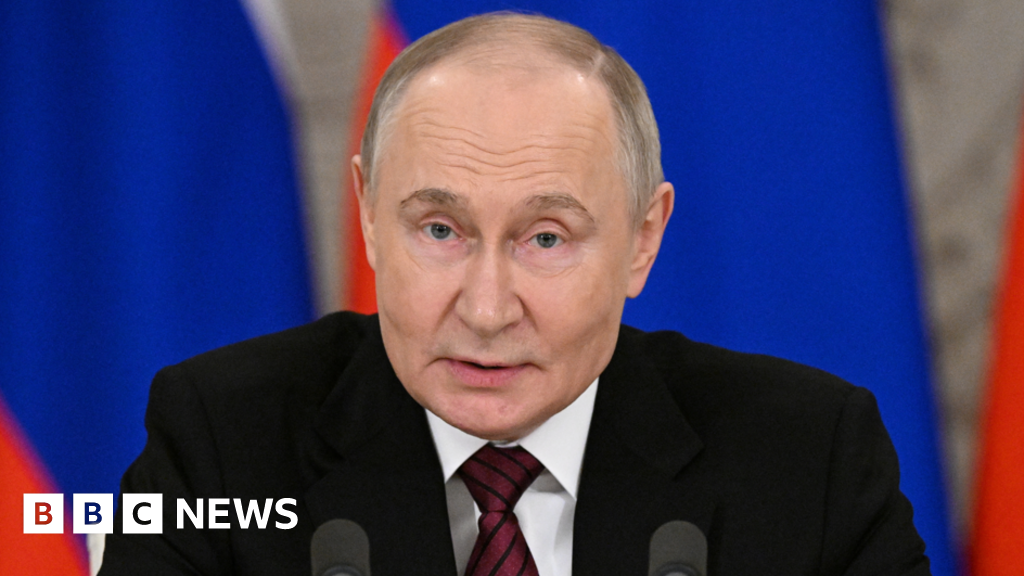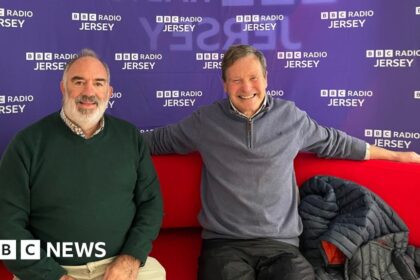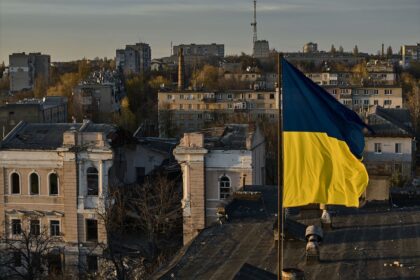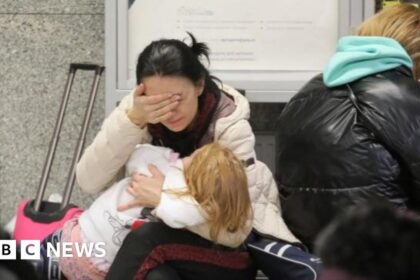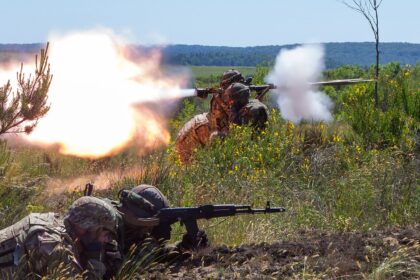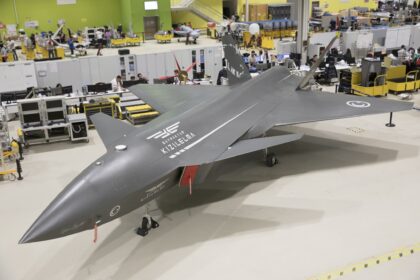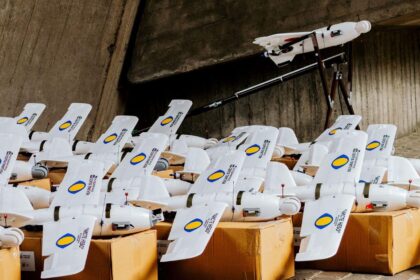**Russia’s Ambiguous Peace Offer: A Calculated Move or Genuine Effort?**
In a statement delivered late last night from the Kremlin, President Vladimir Putin responded to European powers’ ultimatum with an offer of direct talks in Istanbul. However, his proposal has left many wondering if this is a genuine peace initiative or simply a tactic to prolong the war.
**The Ultimatum and Its Consequences**
European leaders had warned Russia that if it didn’t agree to an unconditional 30-day ceasefire from Monday, there would be more sanctions against Moscow and increased military assistance for Ukraine. The Kremlin’s response was clear: we’re serious about peace, but on our terms.
By not committing to an immediate ceasefire, Russia may continue to push forward with the war, aiming to seize and occupy more Ukrainian territory. This calculated move has left Kyiv skeptical, as President Putin’s vague reference to “new ceasefires” may be a ploy to delay a resolution.
**A Calculated Move to Split the Western Coalition?**
The Kremlin’s proposal may also be an attempt to drive a wedge between the US administration and European leaders. By offering direct talks in Istanbul, Russia is signaling to the White House that it is a “man of peace.” However, this move may ultimately hinder efforts to unite the Western coalition in support of Ukraine.
**President Putin’s Intentions: Peace or Prolongation?**
The question remains whether President Putin genuinely wants peace. While he claims to do so, his actions suggest otherwise. By not offering an unconditional ceasefire, Russia is likely to continue its military campaign in Ukraine. The Kremlin may believe it has the initiative on the battlefield and sees little to gain from a temporary cessation of hostilities.
**A Message to the White House**
President Putin’s proposal can be seen as a calculated move to improve ties with the Donald Trump administration. By engaging in direct talks, Russia aims to demonstrate its commitment to peace and potentially secure speedy sanctions relief and an economic boost.
As we consider this complex situation, it is essential to remember that President Putin ordered the full-scale Russian invasion of Ukraine in 2022, widely seen as an attempt to force Ukraine back into Moscow’s orbit. His statement last night was laced with ambiguity, leaving many questions unanswered.
**The International Community’s Response**
Following President Putin’s announcement, international leaders have offered mixed reactions. President Trump hailed the proposal as a “potentially great day for Russia and Ukraine,” while Emmanuel Macron described it as a “first step, but not enough.” The French president emphasized that an unconditional ceasefire cannot be preceded by negotiations.
**Conclusion**
As we navigate this precarious situation, one thing is clear: Russia’s proposal has left many questions unanswered. While the Kremlin claims to be committed to peace, its actions suggest otherwise. The international community must remain vigilant and consider the possibility that this may be a calculated move to prolong the war and divide the Western coalition.
**What’s Next?**
As we continue to monitor developments in Ukraine, one thing is certain: the stakes are high. The international community must carefully evaluate Russia’s proposal and ensure that any efforts towards peace are genuine and inclusive of all parties involved.
**Sources:**
* BBC News
* Various international news agencies
Read More @ www.bbc.com




